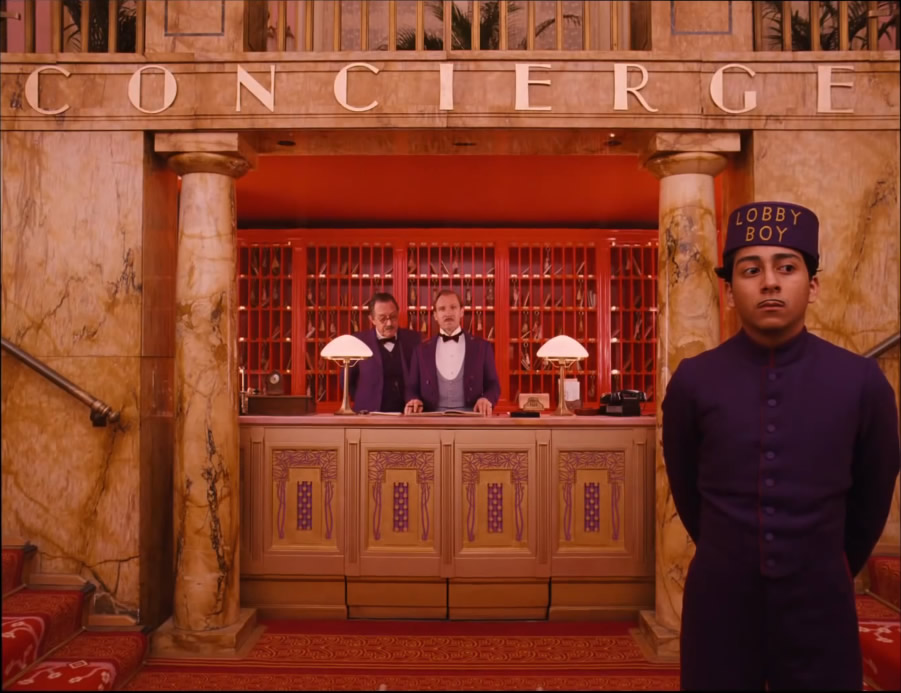There’s a line near the end of Wes Anderson’s The Grand Budapest Hotel that the wonderful F. Murray Abraham delivers about the ability to “maintain the illusion.” He might as well be talking about the entire arc of Mr. Anderson’s career.
His idiosyncrasies are endless. The bold color schemes, the unique costume choices, the multi-directional pan shots, “telling” a film as if it were a book chapters and all…whether you find these ticks endearing or annoying probably determines whether you’re first in line to see a new Wes Anderson movie or at home making fun of the trailer. But if you accept this placeless antiquity, the illusion Anderson presents, he is a storyteller of impressive skill.
His latest finds him in peak form. The film tells the tale of legendary concierge Gustave H. and his dedicated lobby boy Zero Moustafa of the Grand Budapest Hotel; a tale that deals with murder most foul, art theft, prison breaks, true love and the spectre of war. This is Mr. Anderson’s broadest canvas yet. And with the aid of a truly unexpected, inspired performance from Ralph Fiennes as Gustave H. he creates something magical.
To call anything Mr. Fiennes does as an actor “unexpected” belies some failing on his part. But that is miles away from the intent, which is to say that he’s just never done anything like this before. Unchained from the gravitas usually required of him and given the chance to do comedy, Mr. Fiennes dives in head first. Arrogant, kind and resourceful, his Gustave H. is a marvelously complex creation and responsible for most of the truly hilarious moments sprinkled throughout the film.
The rest of Anderson’s growing stable of actors contributes greatly to the experience. Spot appearances by Bill Murray, Jason Schwartzmann, and Owen Wilson bring about that familial air that runs through all of Mr. Anderson’s movies. But just like his last film, Moonrise Kingdom, its the newcomers that shine. As if this strange world Mr. Anderson creates gives an actor chances to explore different ways of acting.
Mr. Fiennes aside, Saorise Ronan in her all too short time on screen brings a touching reality to her relationship with Zero Moustafa, played by the green Mr. Revolori. And Jude Law, as The Writer who bookends the movie, finds the same sense of wonder everyone feels as they hear this incredible tale.
In the end, The Grand Budapest Hotel stands apart from the rest of Mr. Anderson’s films. It doesn’t get mired in dealing with individual relationships and he doesn’t allow his whimsy to distract from the plot. Instead of an insulated world, this one exists in the world at large which adds more weight to the events. It’s a filmmaker in perfect balance with his own desires and what the audience deserves. The story of Gustave H. and Zero Moustafa is one for the ages.



 Ringing in Change: Sakhi’s Historic Achievement
Ringing in Change: Sakhi’s Historic Achievement Good Indian Girl, Sort Of: Sonya Soni
Good Indian Girl, Sort Of: Sonya Soni Ambika Mod Makes Us Bawl Our Eyes Out in ‘One Day’
Ambika Mod Makes Us Bawl Our Eyes Out in ‘One Day’